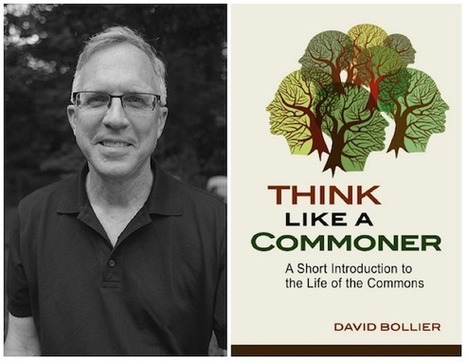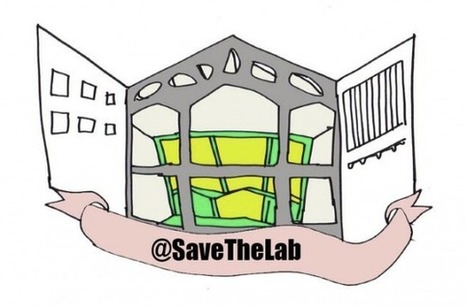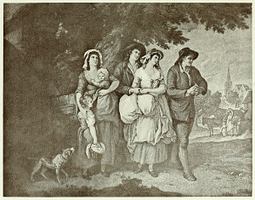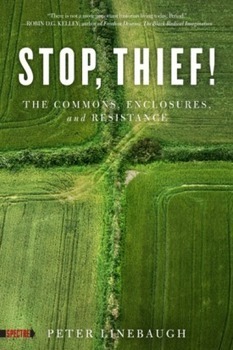 Your new post is loading...
Following Pope Francis’ surprisingly blunt homily about capitalism in November 2013, my friend and colleague Michel Bauwens had the brilliant idea of proposing a practical way for the Pope and Catholic Church to help address economic inequality: let unused church facilities be used as hackerspaces, makerspaces and co-working spaces. This would help local communities reinvent the very idea of the economy with a different logic and ethic, while helping people meet real everyday needs and foster social solidarity. It’s an inspired idea that I hope the Pope and his advisors will consider.
KMO welcomes independent research and writer, David Bollier, to the C-Realm to discus the themes in his new book, Think Like a Commoner: A Short Introduction to the Life of the Commons. First, they dispense with Garret Hardin’s so-called “Tragedy of the Commons,” which purports to demonstrate why it is impossible for people to self-manage a shared resource but which actually demonstrates just how focused academic economics is on validating its own core principles and projecting them onto the world. Later, David talks about the human genome as a commons which is currently being enclosed by corporations who are claiming sections of human DNA as their intellectual property. At the end of the program, KMO reads and responds to listener feedback.
Why not think about the repurposing of unused Church property, for precisely the recreation of a moral and ethical economy? Why not create mechanisms for the creation of common hackerspaces, makerspaces, co-working spaces, where the common endeavours can take place in a meaningful and spiritualized space?
David Bollier, an award-winning policy strategist and international activist, is out with a new book that explains the rich history and promising future of the commons, “an ageless paradigm of cooperation and fairness that is re-making our world.” Unlike Bollier’s previous five books, Think Like a Commoner: A Short Introduction to the Life of the Commons explores the commons in layman’s terms, making it the ideal introduction for anyone wishing to learn more about what Bollier calls our “shared inheritance.”
For people who care about socially engaged, commons-minded tech innovation, there are few institutions in the world as bold and courageous as Medialab Prado, in Madrid. For the past 10 years, it has been a technology lab, an interdisciplinary forum, a space that welcomes public participation, a hub for citizen activism, and a host of provocative workshops and conferences. And, yes, the Medialab Prado has also been deeply engaged with the commons paradigm as an important way of shaping a better, more socially constructive future.
Michel Bauwens of the P2P Foundation recently published a short essay noting that the economic fruits of peer production in today’s world tend to be captured by capitalists – whereas what we really need is a system to enable capital accumulation for and by commoners themselves. To that end, Bauwens embraces the idea of a Peer Production License, as designed and proposed by Dmitri Kleiner.
One of the great achievements of the late Professor Elinor Ostrom was the identification of key design principles for successful commons. She set forth eight of them in her landmark 1990 book, Governing the Commons. The wording of those principles is aimed at social scientists who study the management of common-pool resources from a neutral, non-participatory, scientific perspective. As a result, the principles are not as accessible to the general public, nor do they reflect the direct experiences and first-person voice of commoners.
Michel Bauwens of the P2P Foundation recently published a short essay noting that the economic fruits of peer production in today’s world tend to be captured by capitalists – whereas what we really need is a system to enable capital accumulation for and by commoners themselves. To that end, Bauwens embraces the idea of a Peer Production License, as designed and proposed by Dmitri Kleiner.
Not every country in the world is in hock to GDP growth the way that Britain is. More balanced views are out there on the margins, where growth takes its place as one metric among many – not irrelevant, but not “the government’s number one priority” as Gordon Brown declared it to be when he was PM. I’ve mentioned Thailand’s sufficiency economy before, or Bhutan‘s experiment in Gross National Happiness. To that we can add another: Ecuador.
Michael Bawuens, Founder of the P2P Foundation, has recorded four short videos describing the FLOK Society’s pioneering research project in Ecuador. FLOK stands for “Free, Libre, Open Knowledge,” and the FLOK Society is a government-sponsored project to imagine how Ecuador might make a strategic transition to a workable post-capitalist knowledge economy. As Research Director of the project, Michel and his team are exploring the practical challenges of making commons-based peer production a widespread, feasible reality as a matter of national policy and law.
In our age of predatory markets and make-believe democracy, our troubled political institutions have lost sight of real people and practical realities. But if you look to the edges, ordinary people are reinventing governance and provisioning on their own terms. The commons is arising as a serious, practical alternative to the corrupt Market/State.
David Bollier is a leading writer and advocate for all those real-life commons -- what we own, from the public lands, public airwaves, online information and local civic assets. He calls the commons a "parallel economy and social order that.... affirms that another world is possible. And more: we can build it ourselves, now."
“What do we really want from the businesses in our communities?...Perhaps we first need to ask: what kind of community do we want?
|
The challenge is to learn to see The Commons and more importantly, tothink like a commoner. For years, David Bollier has explored The Commons as a policy strategist and an international activist. He has spent his time writing and collaborating and editing 12 books as well as founding onthecommons.org and blogging at Bollier.org
Michel Bauwens, Founder of the P2P Foundation, has recorded four short videos describing the FLOK Society’s pioneering research project in Ecuador. FLOK stands for “Free, Libre, Open Knowledge,” and the FLOK Society is a government-sponsored project to imagine how Ecuador might make a strategic transition to a workable post-capitalist knowledge economy. As Research Director of the project, Michel and his team are exploring the practical challenges of making commons-based peer production a widespread, feasible reality as a matter of national policy and law.
It is always refreshing to read Peter Linebaugh’s writings on the commons because he brings such rich historical perspectives to bear, revealing the commons as both strangely alien and utterly familiar. With the added kick that the commoning he describes actually happened, Linebaugh’s journeys into the commons leave readers outraged at enclosures of long ago and inspired to protect today's endangered commons.
Jeremy Rifkin's new book, The Zero Marginal Cost Society, brings welcome new attention to the commons just as it begins to explode in countless new directions. His book focuses on one of the most significant vectors of commons-based innovation -- the Internet and digital technologies -- and documents how the incremental costs of nearly everything is rapidly diminishing, often to zero. Rifkin explored the sweeping implications of this trend in an excerpt from his book and points to the "eclipse of capitalism" in the decades ahead.
For people who care about socially engaged, commons-minded tech innovation, there are few institutions in the world as bold and courageous as Medialab Prado, in Madrid. For the past ten years it has been a technology lab, an interdisciplinary forum, a space that welcomes public participation, a hub for citizen activism, and a host of provocative workshops and conferences. And yes, the Medialab Prado has also been deeply engaged with the commons paradigm as an important way of shaping a better, more socially constructive future.
Michel Bauwens of the P2P Foundation recently published a short essay noting that the economic fruits of peer production in today’s world tend to be captured by capitalists – whereas what we really need is a system to enable capital accumulation for and by commoners themselves. To that end, Bauwens embraces the idea of a Peer Production License, as designed and proposed by Dmitri Kleiner.
Michel Bauwens of the P2P Foundation recently published a short essay noting that the economic fruits of peer production in today’s world tend to be captured by capitalists – whereas what we really need is a system to enable capital accumulation for and by commoners themselves. To that end, Bauwens embraces the idea of a Peer Production License, as designed and proposed by Dmitri Kleiner.
Michel Bawuens, Founder of the P2P Foundation, has recorded four short videos describing the FLOK Society’s pioneering research project in Ecuador. FLOK stands for “Free, Libre, Open Knowledge,” and the FLOK Society is a government-sponsored project to imagine how Ecuador might make a strategic transition to a workable post-capitalist knowledge economy. As Research Director of the project, Michel and his team are exploring the practical challenges of making commons-based peer production a widespread, feasible reality as a matter of national policy and law.
Michael Bawuens, Founder of the P2P Foundation, has recorded four short videos describing the FLOK Society’s pioneering research project in Ecuador. FLOK stands for “Free, Libre, Open Knowledge,” and the FLOK Society is a government-sponsored project to imagine how Ecuador might make a strategic transition to a workable post-capitalist knowledge economy. As Research Director of the project, Michel and his team are exploring the practical challenges of making commons-based peer production a widespread, feasible reality as a matter of national policy and law.
Journalist and activist David Bollier talks about his most recent book, co-written with legal scholar Burns Weston, GREEN GOVERNANCE: Ecological Survival, Human Rights, and the Law of the Commons. Then we re-air our 2010 interview with him about the digital commons, VIRAL SPIRAL.
“This report is an effort to document something we know little about: corporate espionage against nonprofit organizations. The entire subject is veiled in secrecy. In recent years, there have been few serious journalistic efforts – and no serious government efforts to come to terms with the reality of corporate spying against nonprofits.
|
 Your new post is loading...
Your new post is loading...



























